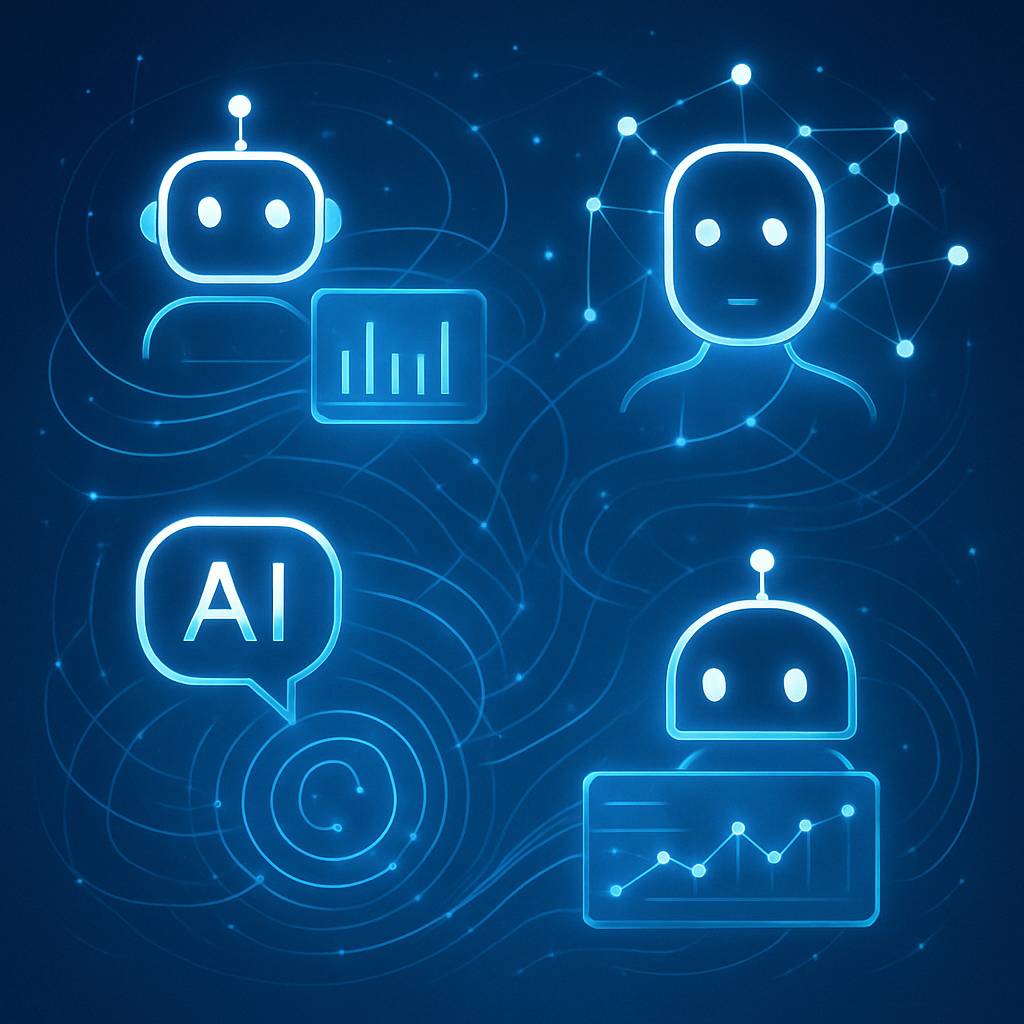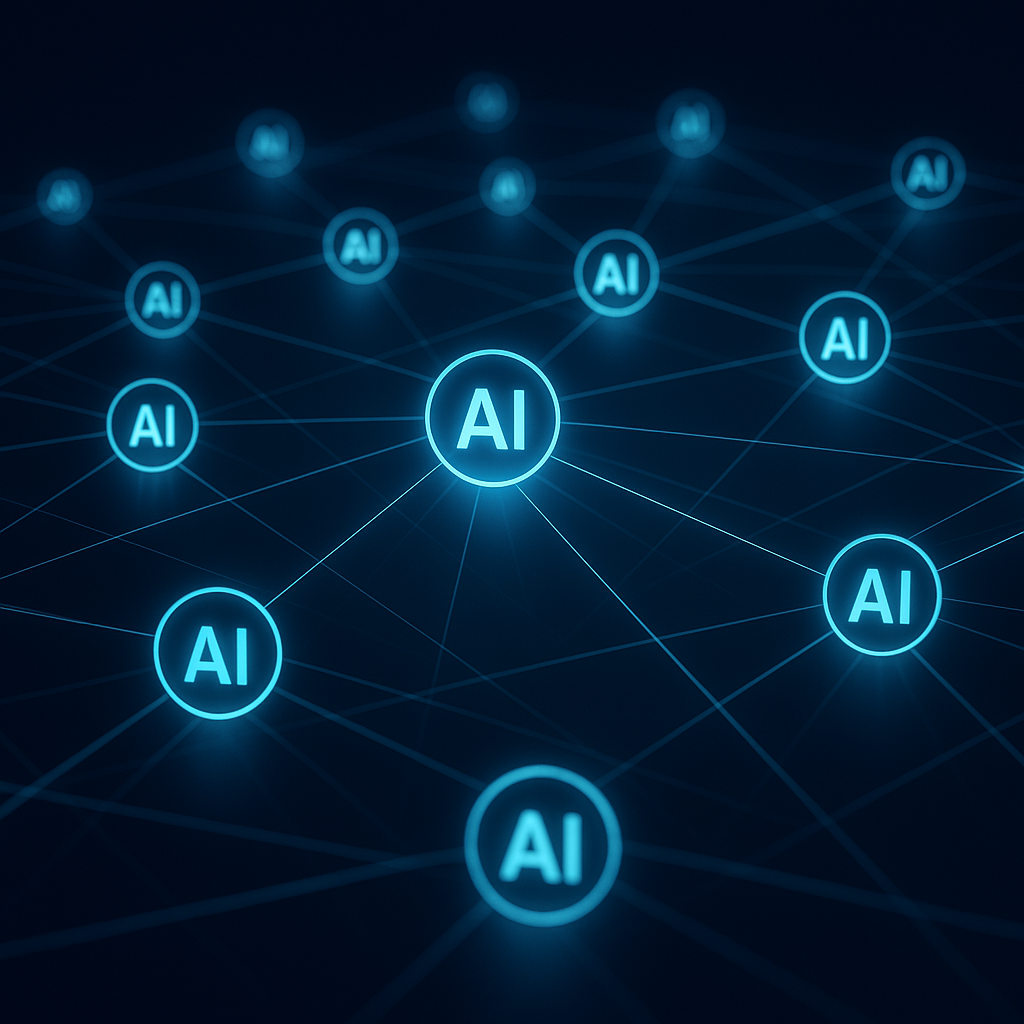Adaptive Computer Agents Shaping AI Advancements in 2025
Understanding Adaptive Computer Agents in AI
Adaptive computer agents are autonomous software entities capable of perceiving their environment, making decisions, learning from experience, and adapting their behavior accordingly. Unlike static algorithms, these agents evolve through interactions, continuously improving their performance in dynamic settings. As the backbone of many AI systems, adaptive agents contribute to the growth and practical deployment of artificial intelligence across various sectors.
Core Characteristics of Adaptive Computer Agents
- Autonomy: Operate independently without constant human intervention.
- Perception: Detect and interpret data from their environment.
- Learning: Use machine learning methods to update knowledge and strategies.
- Goal-directedness: Make decisions aligned with defined objectives.
- Adaptability: Modify behavior in response to changing conditions.
The Impact of Adaptive Agents on ai applications in 2025
As of 2025, adaptive computer agents are integral to the evolution of AI, driving innovations that were once theoretical. These agents enable AI systems to operate effectively in uncertain, dynamic environments, expanding the scope and reliability of artificial intelligence applications.
Enhancing Autonomous Systems
In robotics and autonomous vehicles, adaptive agents provide the intelligence needed to navigate complex terrains and unpredictable scenarios. For instance, delivery drones employ adaptive algorithms to reroute in real-time around obstacles such as adverse weather or urban congestion—a capability vital for safety and efficiency.
Transforming Healthcare AI
Adaptive agents facilitate personalized medicine by interpreting patient data and adjusting treatment recommendations dynamically. AI-powered diagnostic tools now evolve rapidly as they ingest new clinical data, becoming more accurate in detecting diseases such as cancer and managing chronic conditions.
Revolutionizing Financial Services
Financial institutions utilize adaptive agents for fraud detection and risk assessment. These agents continuously learn from transactional data anomalies and adjust their models to spot emerging threats, providing a more robust defense against sophisticated fraud techniques.
Advanced Learning Techniques Empowering Adaptive Agents
Adaptive computer agents capitalize on advancements in machine learning and AI methodologies to realize their potential.
Reinforcement Learning Enabling Decision-Making
Reinforcement learning allows agents to learn optimal actions through trial and error, maximizing cumulative rewards. For example, in supply chain management, adaptive agents refine logistics routing to reduce costs and delivery times by experimenting with different strategies in simulation environments.
Meta-Learning for Rapid Adaptation
Meta-learning, or "learning to learn," equips agents with the ability to swiftly adapt to new tasks with minimal data. This is evident in AI assistants that personalize responses to individual users’ preferences almost instantly after interaction.
Multi-Agent Systems for Complex Collaboration
Adaptive agents now frequently operate in multi-agent environments, collaborating or competing to solve complex problems. In smart grids, multiple agents manage energy distribution collaboratively, adapting to consumption patterns to optimize efficiency and prevent outages.
Practical Examples of Adaptive Computer Agents in Action
Smart Manufacturing with Adaptive Agents
Factories employ adaptive agents to monitor equipment health and adjust production schedules dynamically. For instance, agents detect early signs of machine wear and reschedule maintenance autonomously, minimizing downtime and preventing costly breakdowns.
Intelligent Personal Assistants
Voice-activated assistants now use adaptive agents to refine their interpretations of ambiguous commands and personalize suggestions based on user behavior, context, and feedback, leading to more intuitive human-computer interactions.
Cybersecurity with Adaptive Defenses
Adaptive agents in cybersecurity systems respond in real-time to evolving threats by modifying firewall rules, isolating compromised nodes, and learning from new attack vectors to enhance protection without manual updates.
Challenges and Future Directions
While adaptive computer agents have significantly propelled AI applications forward, several challenges remain.
Explainability and Trust
As agents become more autonomous and complex, understanding their decision-making processes becomes harder, raising concerns about transparency and trust in critical applications like healthcare and finance.
Ethical and Security Concerns
Ensuring agents act ethically, avoid biases, and protect sensitive data is paramount. The potential for agents to be manipulated or to behave unpredictably necessitates robust governance frameworks.
Scalability and Integration
Integrating adaptive agents into legacy systems and scaling them for widespread deployment requires overcoming technical and organizational hurdles.
Conclusion: Adaptive Agents as Catalysts of AI Innovation
Adaptive computer agents represent a transformative force in artificial intelligence, enabling systems that learn, evolve, and make informed decisions across diverse domains. Their ability to operate autonomously in complex environments fosters innovations in robotics, healthcare, finance, and beyond. As research advances and challenges are addressed, adaptive agents will increasingly become the cornerstone of AI applications, driving smarter, more responsive technologies that shape the future landscape of industry and society.







